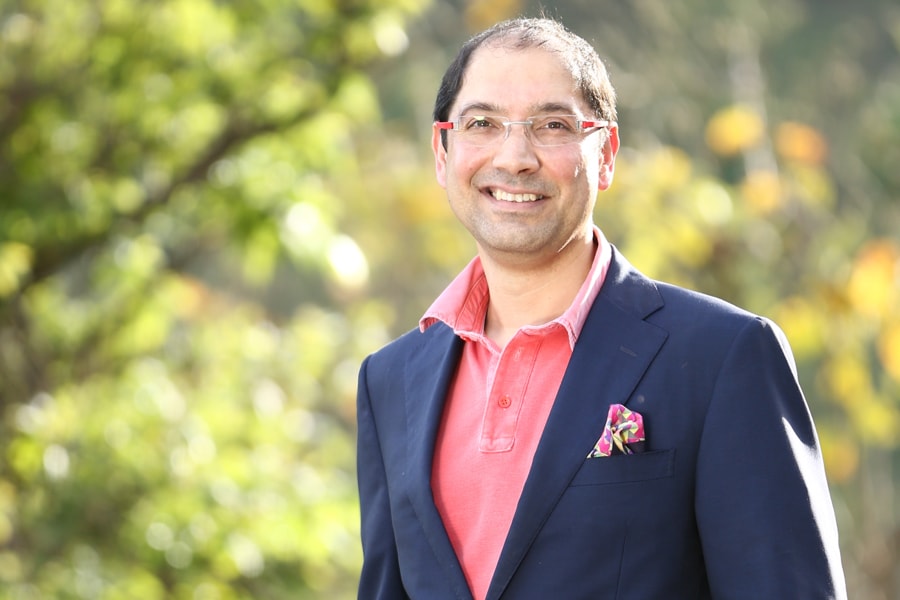
There's a big mistrust between private and public universities: Atul Khosla
The founder and vice chancellor of Shoolini University on the varsity ranking 20th on the QS World University Rankings, plans to foray into online education, why competition from foreign institutes is great and how less money inspires innovation
 Atul Khosla, founder and vice chancellor at Shoolini University
Atul Khosla, founder and vice chancellor at Shoolini University
About 40 kilometres from Shimla, nestled in the foothills of the outer Himalayas and surrounded by Deodar forests, lies Shoolini University in the Solan district of Himachal Pradesh. The university has made it to the QS World University Rankings for the second successive year. The London-based Quacquarelli Symonds (QS) has ranked Shoolini University of Biotechnology and Management Sciences at the 20th spot in the country and in the 771–780 band worldwide. The Massachusetts Institute of Technology (MIT) in the US topped the list for the 12th consecutive year. Of the 45 Indian universities ranked this year, IIT-Bombay made a significant jump, climbing 23 positions to rank 149 globally this year. This is the first time in eight years that an Indian university has broken into the world’s top 150 universities. India is the seventh-most represented country globally, and the third in Asia after Japan and China.
Private universities like Shoolini are also making their way to global lists. In 2004, after retiring as the vice chancellor of one of the public universities in Himachal Pradesh, PK Khosla wanted to pursue his dream of building his own university to impart quality education. His son, Atul, asked him, "How much money do you have?" He proudly retorted: “Rs20 lakh.”
"I then asked him how much money will it take to set up the university… and my father said Rs80 crore. I called my mom and told her to keep her man in check," jokes Atul. But that's what entrepreneurs’ stories are made of, he adds. PK Khosla managed to gather funds from friends and relatives to set up the university—in 2005, in the heart of Solan Town.
The university offers undergraduate and doctoral degrees. It started with providing courses in biotechnology, and currently offers everything from nanotechnology and artificial intelligence to agriculture, the arts and yoga. Ninety percent of the 5,000 students are from Tier II and III towns. The university has 51 percent female students. Forty percent of all learners are first-generation students, and 30 percent are on scholarships. The university also has students from 34 countries, including Afghanistan, Syria, Singapore and Africa.
In a free-wheeling conversation with Forbes India, Atul Khosla, founder and vice chancellor at Shoolini University, talks about the challenges faced by private universities in India, why they still lag behind the public universities in terms of rankings, and their plans to set up an online university. Edited excerpts:
Q. Can you tell us about your plans to foray into online education?








